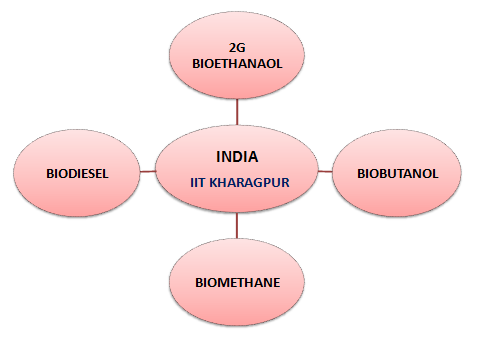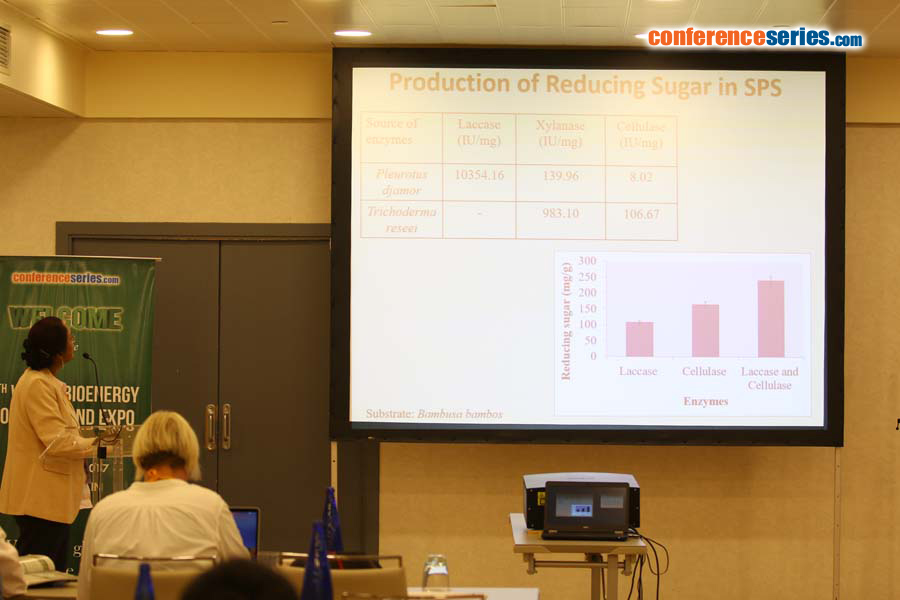
Rintu Banerjee
IIT Kharagpur, India
Title: An Overview of Biofuel Production in India: Scope and Future Goal
Biography
Biography: Rintu Banerjee
Abstract
India the second most populated country after China is one of the largest emitter of green house gases (GHG). Transport sector of India accounts to 13 percent energy-related carbon-dioxide emissions. However, the ever-expanding transport sector can become more eco-friendly and sustainable by channelling the climate change agendas through cutting edge biotechnological research. The transport emissions and demand of gasoline can be reduced by adopting a sustainability approach, which includes long term goals such as increased use of public transport, higher production of biofuel, and improved vehicle efficiency. The current policy scenarios illustrates that in the next two decades India’s primary energy demand will double, from 750 Mtoe in 2011 to 1469 Mtoe in 2030. In this perspective, biofuel are emerging as the most promising alternative options to conventional fuels, as they can be produced locally, and can substitute diesel or gasoline to meet the transportation sector’s energy requirements. Specifically second generation biofuel could have positive implications for national energy security, local air quality and GHG mitigation, employment generation and rural development. The present work highlights the current status and potential of biofuel in India, identifies key challenges in achieving the country’s biofuel targets, and analyses their role in India’s long-term transport scenarios. IIT Kharagpur engaged in lignocellulosic biofuel production utilizing non-edible lignocellulosic biomass. The entire 2G biofuel production process is cost effective enzymatic venture where in-house enzymes are being produced from the new isolates from local habitat and thus, is devoid of any chemical use that makes the process eco-friendly and sustainable in nature with the integrated approach of bio-refinery having improved yield of bioethanol, biomethane and biobutanol.

Recent Publications:
- Banerjee R, Chintagunta AD, Ray S (2017) A cleaner and eco-friendly bioprocess for enhancing reducing sugar production from pineapple leaf waste. Journal of Cleaner Production http://dx.doi.org/10.1016/j.jclepro.2017.02.088.
- Avanthi A, Banerjee R (2016) A strategic laccase mediated lignin degradation of lignocellulosic feedstocks for ethanol production. Industrial Crops and Products 92, 174-185.
- Rajak RC, Banerjee R (2016) Enzyme mediated biomass pretreatment and hydrolysis: A biotechnological venture towards bioethanol production. RSC Advances, 6, 61301-61311.
- Gujjala LKS, Bandyopadhyay TK, Banerjee R (2016) Kinetic modelling of laccase mediated delignification of Lantana camara. Bioresource Technology, 212, 47-54.
- Rajak RC, Banerjee R (2015) Enzymatic delignification: An attempt for lignin degradation from lignocellulosic feedstock. RSC Advances, 5, 75281-75291.
Break: Group Photo & Coffee Break @ Foyer 10:40-11:00


